One of the biggest barriers to getting your dream job is landing that first interview, but the gatekeepers aren't just recruiters and ATS systems - they're scientifically bad resumes and the data shows it.
But the biggest problem you see with online resume advice is that it's contradicting and not based on enough experience or data.
So I did the work for you and spent hours digging up the top 5 proven principles where all the experts and data agree, from:
Studies of over 125,000 resumes
Vice Presidents from Amazon, Netflix, and startups who reviewed 10s of thousands of resumes,
Hiring managers and recruiters
Some cool recruiter eye-tracking studies
My own experience reviewing 1,000s of resumes as a Senior Director of Product
So whether you're just starting out or updating your resume as a senior leader, you can stop guessing and write a resume that's proven to land you interviews and jobs.
3 Resume Templates
You can find the resume examples/templates here with DOCX and PDF versions so you can actually use them!
Here's a quick list of the 5 proven resume principles where research data and experts agree.
And I'll break each down afterward with real data and examples:
#1 Show, don't tell.
#2 Be concise.
#3 Prioritize.
#4 Cut the fluff.
#5 Use (the right amount of) keywords.
So what does this mean for you and how can you start using it now?
Starting with #1, Show. Don't tell.
Every expert said missing this was the #1 mistake they see in resumes. Including specific numbers to show your achievements can make you 40% more likely to get an interview, but I've seen many candidates struggle to put numbers to their work.
But 3/4 of resumes had less than 5 metrics and over 1/3 have none in Austin Belcack's study of 125,484 resumes.
Companies want measurable results because
metrics are persuasive.
If 10 videos say "Most recruiters like metrics" and I say "92% of 1600 surveyed recruiters say you need metrics", which will convince you more?metrics are eye-catching and break up the blocks of words.
metrics show that you know how to measure your work and improve
A simple way to showcase your achievements is by using this formula:
State what you achieved,
How you measured its success, and
How you did it
For example:
"Led the launch of 2 new pricing tiers that lifted signups by 75% by conducting customer pricing research."
If it's hard to measure your output, for example, if you were just a marketing contributor to a larger project, you could highlight the impact of your contribution:
"Designed marketing creative for the Spring launch that beat the previous year's sales by +60%, incorporating sales team feedback in designs."
Or if you're in a technical role, Alex Chiou - a tech lead from Meta - gives this example:
"Increased Android test coverage by 80%, reducing user bug reports by 50%"
And put numbers they will understand.
Ethan Evans, a former VP of Engineering at Amazon, suggests including how much money your work saved or earned for your company.
For example:
"Led the launch of 2 new pricing tiers that lifted signups 75%...resulting in +$29M in incremental revenue"
And if there is absolutely no number, find another objective signal of success, like awards, new customers, or enabling another project to be successful.
#2 Be concise. Keep your resume to 500-600 words and 1-2 pages.
Resumes over 600 words are 43% less likely to land an interview according to a TalentWorks study of over 6,000 job applications. You can see in this chart how less than 475 words also hurts your shot at getting interviews. Over 77% of resumes don't meet this criteria.
Another study tracking the eyes of recruiters as they reviewed resumes on the job showed they spent only 7.4s on average per resume and only read a fraction of each page.
Most people keep adding to their resumes, believing the next bullet or keyword is the one that will win the recruiter over.
But the more you put in, the less they will read from the most critical information.
Ethan Evans was a VP at Amazon with 30 years of experience and only has a 2-page, 700-word resume, so there's no reason you will need more.
As he puts it:
"Your goal is not to tell...your life story, it is to put your 3 best accomplishments per role...so [the hiring manager] can't miss them."
Recent surveys and simulations show recruiters prefer 2-page resumes for senior candidates, but they did not agree on advice for entry-levels, and this was not based on actual interviews and offers, so it could be biased.
The experts were more aligned, and all recommended 1 page per 5-10 years of experience.
Of course, there are exceptions in academic and medical fields.
And in some regions like the Middle East and Europe, but even then not usually for US-based companies.
But for almost all of you, just keep it short and focus on...
#3: Prioritize.
All experts suggest cutting old and less relevant points to focus on the most important ones, but what does the data say?
We know recruiters spend only 7.4 seconds per resume on average.
But luckily, recruiters scan your resume in an F pattern - and you can hack this to get them to read more.
The Ladders eye tracking study showed that:
1. First, recruiters scan down the left of the page looking for key brand name companies or role titles,
- So make sure the most important information, roles, and companies are left aligned, with company names bolded, so they're easy to find and draw the recruiter's eye down the page.
- They might not even read the bullets if they don't get hooked by the role and title
- Startup VP Aakash Gupta suggests giving context to make lesser-known companies more relevant. For example ""Tabby - $1.5B buy now, pay later platform"""
2. They then scan down and across the top of the bullets for that role, reading only the first few words per bullet and less for each bullet down the list.
- This means you need to put your most impactful and relevant bullets at the top of each section.
- It also means in the first 5-8 words, you need to put either the accomplishment with some context for why it's so impressive or swap the order and put the metric first.
- For example, start with either
"Launched the company's first ever X, resulting in..."
or
"Improved Y +30% by...”
- This stops their scanning so they will read the rest of the bullet
3. It showed that recruiters got distracted by images, graphics, and formatting like columns and colors, making them spend less time on the content of your resume.
So unless you're a designer, prioritize content over style and use boring clean templates. Maybe adding a single text color to make company names pop.
A good way to think about this is if you folded your resume so just the left 1/3rd is showing, would a recruiter be intrigued enough to want to interview you?
You should still use the chronological order of experience, but Netflix's former VP of Product, Gibson Biddle, encourages you to include more details about your most recent roles, giving them 3-4 bullets each, with only 1-2 bullets for earlier jobs.
The eye-tracking study showed that recruiters not only skip the last few bullets for each role, they barely read the later roles in the resume.
#4 Once you've prioritized, it's time to cut the fluff.
Recruiters and hiring managers all dislike buzzwords, cliches, adverbs, personal pronouns, passive or team-based words, and any subjective self-rating you give yourself on resumes.
Unfortunately, we see tons of this from even some senior candidates, and especially ChatGPT written resumes.
Again, this is an example of Show. Don't tell.
I hope you already feel cringy writing cliches and buzzwords like "team-player" and "detail-oriented,” but there is more fluff to cut.
Empty words fill the top of many people's resumes, like "customer lifecycle management, entrepreneurial thinker, agile, test-driven developer."
You are not demonstrating either soft or hard skills by including these words.
Anyone can put these in so they become meaningless.
So, instead of saying qualitative opinions of yourself, just show examples instead.
Instead of saying "scrappy and entrepreneurial," show with
"Brought X new product from concept to launch with limited resources."
Instead of saying "cross-functional team leadership", show with
"Hit a project launch deadline with $10M at stake by leading cross-functional partner teams to unblock critical issues."
Related: Many experts agreed that "adverbs" are "bad" verbs. Meaning they should be taken out or replaced with evidence.
Instead of
❌ "Successfully implemented X software"
use
✅ "Implemented X software, resulting in 95% daily usage by the support team."
No personal pronouns and limit teamwork words
Surprisingly, even a single personal pronoun like "I", "we" or "you" was shown to hurt chances of getting an interview.
And "team-oriented" words like "collaborated” or “assisted" hurt resumes if used too much - so replace them with leadership words like led or managed that increased interview rates."
And after prioritizing and cutting the fluff, you might be wondering how you meet the job description requirements...
That brings us to
#5 Use the right amount of job keywords
Adding critical job keywords was shown to improve hirability by +59%, but only 51% of job description keywords and skills were matched in candidate resumes.
But this isn't all bad.
Yes, Applicant Tracking Systems do filter on the important keywords, and recruiters want at least half of the requirements met, but Ethan Evans, former VP of Amazon, observed that even more senior candidates try to cram in a large number of keywords at the top of the document to pass.
First off, in 2023, Forbes reported 80% of all jobs go to someone with a network connection to the role, so you shouldn't be relying on the ATS to get your resume seen or you're limiting yourself to 20% of roles.
For that, subscribe my next videos on crafting your LinkedIn and networking.
Second, we showed how recruiters scan resumes in an F pattern and read only part of it, so cramming words at the top will just hide your more important accomplishments.
Lastly, most experts suggest tailoring your resume to a job description by replacing bullets and words as opposed to cramming all words in for all job descriptions
I have seen 3 good ways to include keywords:
Include it in a skills section at the end of the resume, but only include more recent skills you can speak to at length.
Put a skills or technologies section as the last bullet for your most important jobs to show the technologies used in context.
Add the keywords at the end of the impact statement bullets themselves. "
I'll share an example resume for a Product Manager, a Software Engineer, and a Marketer here.
But you might be asking:
"What about the other best practices like summary sections or white space?"
Experts don't all agree here, but you can use our principles to guide you.
Based on the F-shaped pattern, one candidate would want their recent ""Google"" experience right up top with no distractions, but someone else who worked at Google 5 years ago might want to flag that up top in a highlight bullet or 1-sentence summary.
Want more advice? Comment below if you want to know my top 5 resume mistakes.
And your resume isn't the most important part of the job search. Many candidates are getting hired with just their LinkedIn, so subscribe to watch my next videos on writing a magnetic LinkedIn profile and networking to get interviews.
📚 RESEARCH SOURCES
• TalentWorks Study of 6k+ Resumes: https://medium.com/@erika.russi/the-data-behind-the-job-search-39065bb3cdd7
• Austin Belcak Study of 125k+ Resumes: https://cultivatedculture.com/resume-statistics/
• Eye Tracking Study 1: https://www.bu.edu/com/files/2018/10/TheLadders-EyeTracking-StudyC2.pdf
• Eye Tracking Study 2: https://www.theladders.com/static/images/basicSite/pdfs/TheLadders-EyeTracking-StudyC2.pdf
• Eye Tracking Study 3: https://www.linkedin.com/pulse/optimizing-your-resume-eye-tracking-research-user-daniel-shepard/
• Startup VP Tips: https://www.news.aakashg.com/p/how-to-customize-your-resume-to-actually
• Amazon VP Tips: https://blog.bytebytego.com/p/the-top-3-resume-mistakes-costing
• Netflix VP Tips: https://askgib.substack.com/p/what-are-your-top-tips-for-a-pm-resumecv
• Engineer Resume Tips: https://www.jointaro.com/lesson/vRBmlGl7rrqlWUDolHYn/explaining-your-experience-in-a-meaningful-way-on-a-resume/
• Google's Resume Tips: https://www.inc.com/bill-murphy-jr/google-recruiters-say-these-5-resume-tips-including-x-y-z-formula-will-improve-your-odds-of-getting-hired-at-google.html






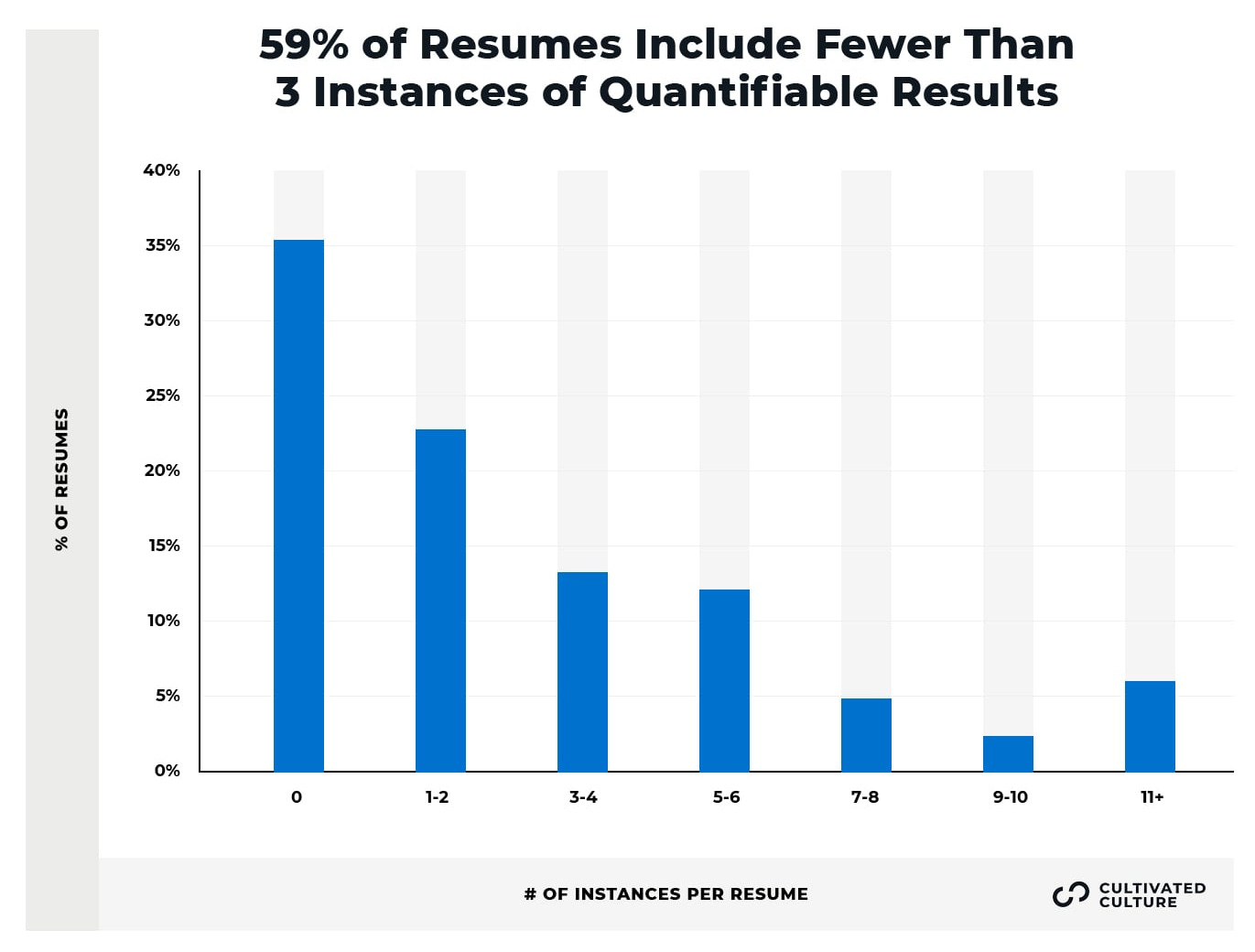

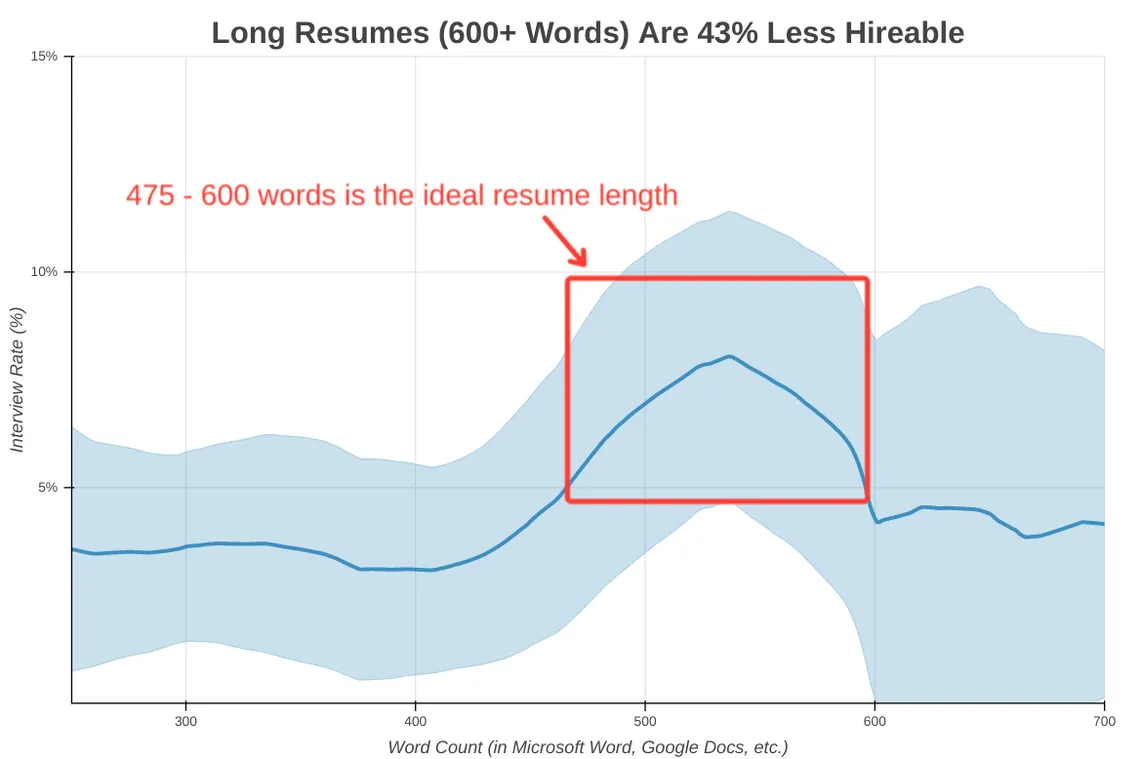

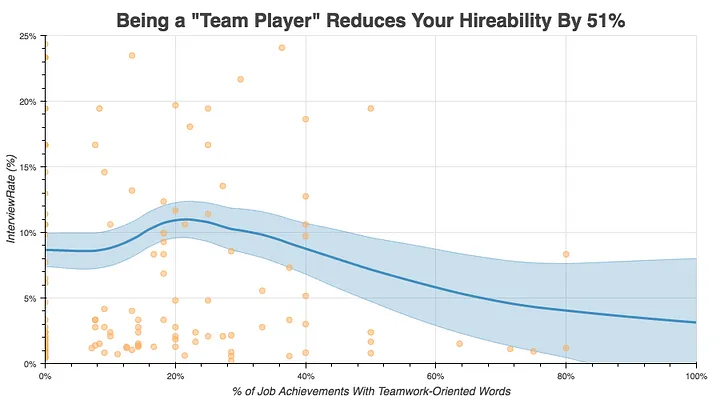
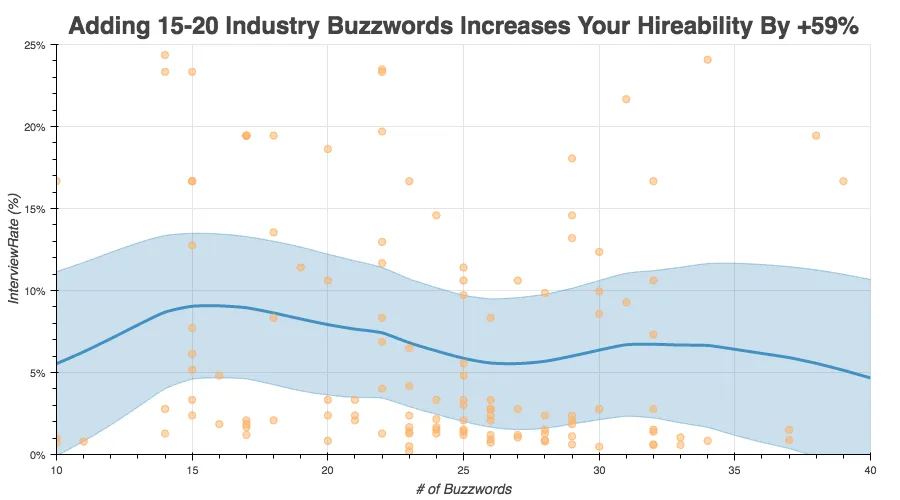
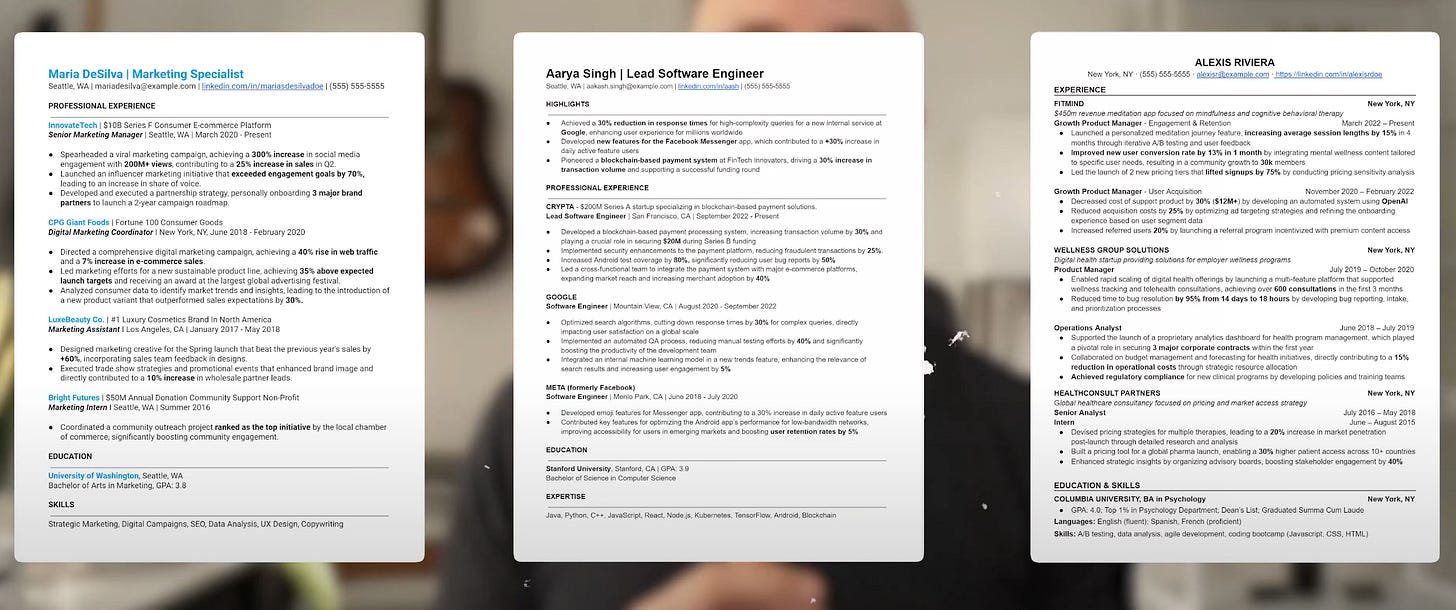

Share this post